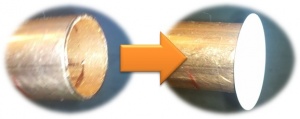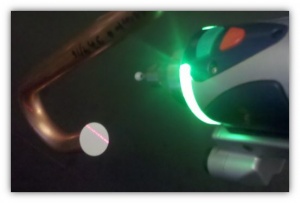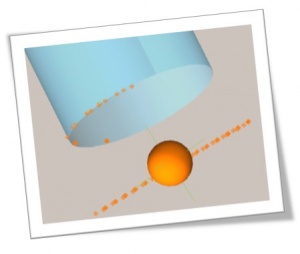Difference between revisions of "End-Scan Using End Targets"
(→Why this technique is important) |
(→How the technique works) |
||
| Line 21: | Line 21: | ||
For tubes that don't qualify for either of the above techniques, we recommend end targets for ultra-precise measurements. | For tubes that don't qualify for either of the above techniques, we recommend end targets for ultra-precise measurements. | ||
| − | ===How the technique works=== | + | ===How the End-Scan technique works=== |
<table cellpadding=10> | <table cellpadding=10> | ||
Revision as of 21:52, 27 January 2012
|
|
Why this technique is important
The quick End-Scan Using the Scissor Motion technique is not always precisely repeatable if you use any of the AUTO exposure settings to set the LASER exposure in real-time. The reason is that as he laser drops off the end of the tube, the automatic exposure feature impacts which of the points are kept where the tube drops off (at the end).
The solution to this issue is to use the End-Scan Using the End Wall technique - which works well for tubes that have end-walls that are easy to aim at - AND end-walls that are not highly reflective with deformations like burrs.
For tubes that don't qualify for either of the above techniques, we recommend end targets for ultra-precise measurements.
How the End-Scan technique works
|
|




